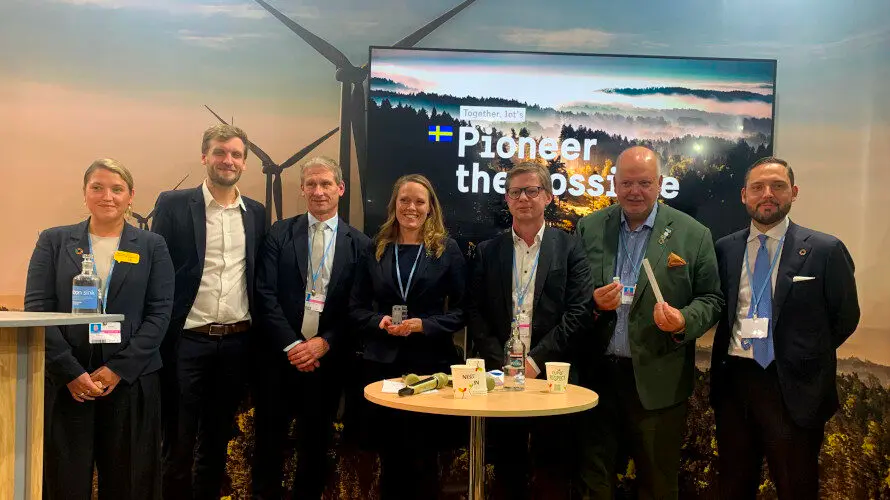Alongside ongoing climate negotiations there is a feverish level of activity here in Sharm el-Sheikh. To describe the latter, I relate it to something that many of us may recognize or have some connection to – Almedalen, a week chock-full of politics that takes place in Visby, Sweden every summer. Think Almedalen in cubes, well that’s pretty close to what we’re experiencing here. A large exhibition hall in the center, with incredible activity going on everywhere else with meetings, seminars, interviews, talks, recordings, and everything else imaginable. I have never experienced such an intense buzz before. And the common denominator is “how are we going to meet our climate challenges?” I think that here, surely, there must be opportunities to drive climate-related issues – because there are many – in the right direction in order to achieve the content of the Paris Agreement.
Our issue is ”decarbonization”, meaning how we remove carbon dioxide from the atmosphere, which is also its own theme at COP27. Yesterday we at Stockholm Exergi arranged our own sizable seminar on that very theme, and I think it went very well. There was a lot of interest and a large audience, and the speakers and the panel that followed were able to clearly pinpoint the issues that are critical to driving development forward. One area of focus was financing – both private and public – and an international voluntary market for negative emissions needs to come into place here. Article 6 of the Paris Agreement is one of several factors that will be very important here. In order to create a market for trade of negative emissions, a global regulatory framework needs to be established. We do not believe that the way the Paris Agreement is currently outlined can drive the necessary volumes that the IPCC AR6 deems necessary. In particular, the current uncertainty surrounding public-private co-funding negatively impacts the potential contribution by the voluntary market.
Our second day at COP27 entailed several more fruitful meetings for our CEO Anders Egelrud. These conversations show that the issue of negative emissions is constantly advancing forward. Combine this with stakeholders who are curious about how negative emissions can benefit them and certain issues are becoming more concrete. One such issue is the permanence of carbon storage: how should it be valued?
We are now heading into day three, our last day here on site. And from my Stockholm Exergi perspective, I am struck by how much interest there is in what we can contribute. It clearly revolves not only around our goal of being able to produce negative emissions with BECCS, but also the ingenuity of our resource-efficient district heating system and all the benefits it presents. For example, we talked to a company from India that wants to visit us in Stockholm because they see potential in Waste to Energy. Who would have thought?
Charlotte Lindevall
Head of strategic communication, Stockholm Exergi
Speakers and panel at Stockholm Exergi’s seminar: Emma Modeen Wiking (Business Sweden), Pär Larshans (RagnSells), Madeleine Gillborne (AlfaLaval), Niclas Carlsson (Energimyndigheten), Kristian Rönn (Normative), Fredrik Ekström (Nasdaq) and Anders Egelrud (Stockholm Exergi).

